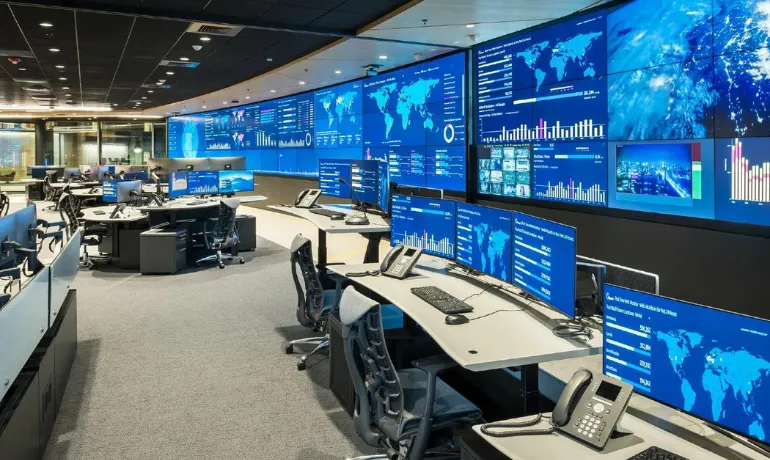In a rapidly changing world, the ability to effectively manage crises is crucial for any nation. In the UAE, where diverse industries and a high population density coexist, emergency control rooms play a pivotal role in crisis management. This blog delves into how these control rooms ensure continuity during disasters by facilitating effective communication and decision-making processes.
The Role of Emergency Control Rooms
Emergency control rooms are specialized facilities that serve as command centers during crises. Their primary responsibilities include:
– Centralized Coordination: Control rooms act as the hub for coordinating responses among various agencies, including police, fire departments, healthcare services, and government entities.
– Real-Time Monitoring: Equipped with advanced technology, control rooms continuously monitor evolving situations, providing decision-makers with up-to-date information.
– Resource Management: Effective resource allocation is essential during crises, and control rooms facilitate the deployment of personnel, equipment, and supplies to areas in need.
Ensuring Effective Communication
During emergencies, clear and efficient communication is vital. Control rooms enhance communication in several ways:
– Integrated Communication Systems: Advanced communication tools allow for seamless interaction among different agencies, ensuring that information flows smoothly and rapidly.
– Public Communication: Control rooms manage the dissemination of information to the public through various channels, including social media, press releases, and emergency alerts, keeping citizens informed about safety measures and updates.
– Collaboration with NGOs and Volunteers: Control rooms also coordinate with non-governmental organizations and volunteer groups, ensuring that all hands are on deck during a crisis.
Facilitating Decision-Making
Quick and informed decision-making is crucial in crisis situations. Control rooms support this process by:
– Data-Driven Insights: By analyzing real-time data from multiple sources, control rooms help leaders make informed decisions quickly. This includes assessing the situation, predicting potential outcomes, and determining the best course of action.
– Scenario Planning: Control rooms often engage in scenario planning and simulations, preparing teams for various potential crises. This preparedness allows for quicker and more effective responses when real emergencies arise.
– Situation Reports: Regular updates and situation reports keep all stakeholders informed, allowing for cohesive strategies and coordinated responses.
Case Studies in the UAE
The UAE has faced several challenges that highlight the importance of effective crisis management through control rooms:
– Natural Disasters: During incidents like floods or sandstorms, control rooms have successfully coordinated emergency responses, providing timely information to first responders and the public.
– Public Health Crises: The COVID-19 pandemic underscored the vital role of control rooms in managing public health crises, as they coordinated testing, vaccinations, and public health messaging across the nation.
Challenges in Crisis Management
Despite their critical role, control rooms face challenges:
– Resource Limitations: Adequate resources and funding are essential for maintaining effective control room operations, especially during large-scale emergencies.
– Interagency Coordination: Ensuring effective collaboration among various agencies can be complex, necessitating continuous training and communication strategies.
– Public Perception: Maintaining public trust and ensuring clear communication is vital during crises, as misinformation can lead to panic and confusion.
Conclusion
Crisis management control rooms in the UAE are essential for ensuring continuity during disasters. By facilitating effective communication, supporting decision-making, and coordinating responses among various agencies, these control rooms play a vital role in safeguarding the public and maintaining order during emergencies. As the UAE continues to evolve, the capabilities and technologies within control rooms will undoubtedly advance, enhancing the nation’s resilience in the face of future crises.

